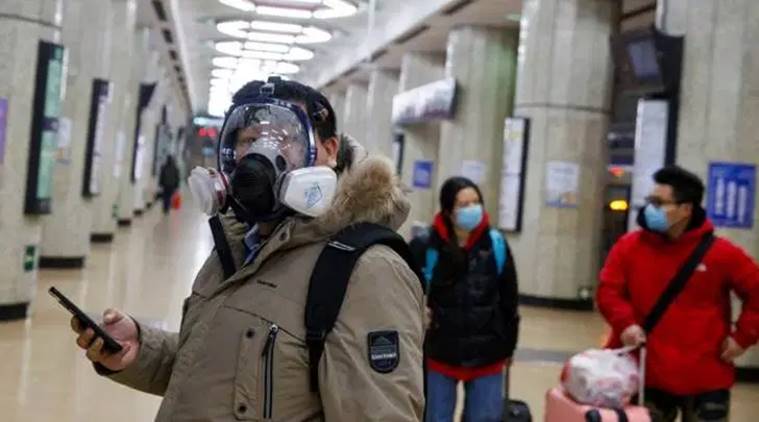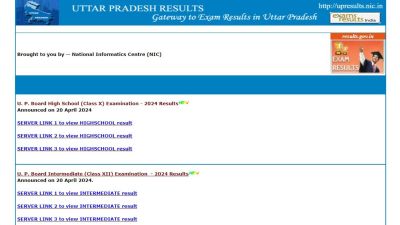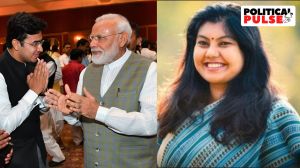- India
- International
COVID-19 has sharpened US-China conflict. WHO is caught in the crossfire
China has carefully calibrated its rise in UN system. World, including India, must deal with consequences.
 A man wears a face mask at a metro station in Beijing, China. (Reuters Photo)
A man wears a face mask at a metro station in Beijing, China. (Reuters Photo)
One of the casualties of the US-China wrangling over the coronavirus is the World Health Organisation, which is supposed to be at the very heart of the global effort to cope with the pandemic. The WHO leadership, especially its Director General Tedros Adhanom Ghebreyesus, has been accused of serving China’s interests rather than preparing the world against the spread of the virus.
The basis for these charges is the WHO’s endorsement of the Chinese claim in mid-January that there was no evidence of human-to-human transmission of the virus, consistent support for Beijing’s handling of the crisis and criticism of other nations for imposing travel restrictions to and from China. Critics also believe the WHO lulled the world into complacence by delaying the decision on calling it a global emergency. Whatever the merits of these arguments, they point to the new geopolitics of multilateralism, disprove the assumptions in both the West and India on China’s role in the UN, and underline Beijing’s success in the leveraging of international organisations for its national advantage.
On the face of it, the sentiment that nations must work together against common trans-national threats is an eminently sensible one. But it does not easily translate into concrete actions. Take climate change. Attempts at developing collective solutions to the problem over the last three decades have foundered. Most leaders agree on the problem and the solutions; but are not willing to accept the framework — either the domestic or international — for distributing the costs associated with the solutions.
The problem of the cost-benefit distribution is compounded by great power rivalries. The coronavirus has shown up at a moment of deepening tensions between the US and China. The grave collective challenge that the virus constitutes has only sharpened the conflict. The US blames Beijing for letting this virus become a global monster and Beijing is doing all it can to deny that the virus came out of China.
That brings us to the WHO, which is caught in the crossfire. The charge that the WHO leadership might have become a “tool of Chinese propaganda” shows how dramatically the relationship between Beijing and the world body has transformed in recent years. Nearly two decades ago, during the SARS crisis, WHO was at the front and centre of pressing China to come clean on the unfolding pandemic. In 2003, it had issued the organisation’s first travel advisory ever on travel to and from the epicentre of the pandemic in southern China. As the SARS crisis escalated, Beijing’s traditional arguments about the centrality of state sovereignty yielded place to a new policy of working with the WHO and taking proactive steps to reassure neighbours in South East Asia.

Opinion | COVID-19 lockdown has profound economic implications. Policy response should be coherent
Some attribute the turnaround in the relationship between Beijing and WHO to China’s growing financial contributions. Others suggest that China’s political support was crucial in the election of Tadros in 2017. Observers of the UN point to something more fundamental — a conscious and consequential Chinese effort to expand its clout in the multilateral system. China, which was admitted to the UN system in the 1970s, was focused on finding its way in the 1980s, cautiously raised its profile in the 1990s, took on some political initiatives at the turn of the millennium and seized the leadership in the last few years.
Neither the West nor India have been prepared to deal with the impact of China’s rise on the UN system. The US and its allies bet that China will be a “responsible stakeholder”. Put another way, they hoped that China will play by the rules set by the West. China, of course, wants to set its own rules. Only the political innocents will be shocked by China’s natural ambition. India, which considered US dominance over the international institutions in the 1990s as a major threat, chose to align with China in promoting a “multipolar world”. Delhi convinced itself that despite differences over the boundary, Pakistan and other issues, there is huge room for cooperation with China. To their chagrin, the West and India are being compelled to respond to a very different environment at the UN. China wants to replace America as the dominant force in the UN. The US is now fighting back. Last month, Washington went all out to defeat the Chinese candidate for the leadership of an obscure UN agency called the World Intellectual Property Organisation.
Delhi discovered that Chinese global hegemony could be a lot more problematic than American primacy. After all, it is China that complicates India’s plans for membership of the Nuclear Suppliers Group, protects Pakistan against international pressures on cross-border terrorism, and relentlessly pushes the UN Security Council to take up the Kashmir question. India now turns to the US and its allies to pursue some of its interests in the UN.
Editorial | The post-COVID world needs a new model of diplomacy, one that is more compassionate and humane
Political ironies apart, if there is one lesson that India could learn from China’s experience with WHO and the UN, it is that multilateralism is not an end in itself for major powers. It is an important means to secure one’s national interest and shape the international environment. As a nation battered by the Cultural Revolution, China used international cooperation and global institutions to rebuild itself in the last decades of the 20th century. Having developed its economy and advanced its scientific and technological base, China is now ready to reorder global governance and become a rule-maker.
The effects are visible in the arena of global health. China’s expanding global engagement with the WHO, its substantive international health assistance programmes, and an impressive domestic health technology sector are poised to boost China’s ambition to build a “Global Silk Road for Health’.
On its part, Delhi needs to intensify the recalibration of India’s multilateralism, rewrite its diplomatic lexicon at the UN, and build new political coalitions that will simultaneously contribute to India’s internal modernisation and enhance its international influence. The corona crisis is a good moment to start writing a new script for India’s own health diplomacy.
Also read | Opinion: Covid-19 brings a moment of reckoning with our unbridled consumerism, greed
This article first appeared in the print edition on March 24, 2020 under the title ‘China and WHO, a new story’. The writer is director, Institute of South Asian Studies, National University of Singapore and contributing editor on international affairs for The Indian Express
EXPRESS OPINION
Must Read
More Explained
Apr 20: Latest News
- 01
- 02
- 03
- 04
- 05










































